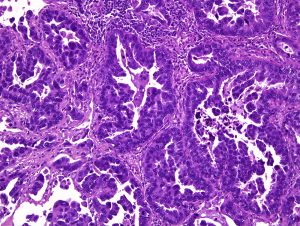In patients with cancer, initial diagnosis most often includes the detection of the primary or original tumor and the presence or absence of metastases, i.e. cells from the original tumor that have escaped from their original location and are growing into other tissues of the patient. However, in between 5% and 10% of human tumors this process is done otherwise: metastasis is diagnosed, but the primary tumor is not detected despite various diagnostic testing. This situation is called Cancer of Unknown Primary (CUP). As the type of tumor is not known, the survival of these patients it is very limited. The article published in The Lancet Oncology, the most prestigious journal in the Medical Oncology field, by Dr. Manel Esteller, shows that it is possible to use a newly-developed epigenetic test – called EPICUP®- to find out what type of primary tumor is responsible for the metastasis in the patient, which will allow doctors to develop more specific treatments against it.
A few years ago, researchers became aware that the chemical patterns that regulate the activity of genes (the epigenome) are specific to each tissue. For example, they are different in a pancreatic cell compared to a lung cell. Dr. Esteller’s group have analyzed these particular epigenetic signatures for each type of cancer in more than 10,000 human tumors. When they now study the DNA of the metastasis of a patient with a tumor of unknown origin, the photograph of the epigenome that they get tell them that it belongs to the family of pancreatic cancer, lung, colon, breast, etc. in other words, it provides a diagnosis of the origin of the tumor. Identification of the type of cancer by epigenetic test will have a significant impact on the choice of treatment. From now on, the patient will not be treated blindly, since we will be able to provide a much more specific therapy for this tumor type; actually, initial data shows that survival is doubled. Importantly, this is not a discovery to be developed in the coming years; the collaboration with pharma, biotech and the health authorities made it possible for this test to be applied in the current year.
Reference
Moran S, Martínez-Cardús A, Sayols S, Musulén E, Balana C, Estival-Gonzalez A, Moutinho C, Heyn H, Diaz-Lagares A, Castro de Moura M, Stella GM, Comoglio PM, Ruiz-Miró M, Matias-Guiu X, Pazo-Cid R, Antón A, Lopez-Lopez R, Soler G, Longo F, Guerra I, Fernandez S, Assenov Y, Plass C, Morales R, Carles J, Bowtell D, Mileshkin L, Sia D, Tothill R, Tabernero J, Llovet JM & Esteller M 2016, ‘Epigenetic profiling to classify cancer of unknown primary: a multicentre, retrospective analysis’, The Lancet Oncology, 17, 1386–1395.
